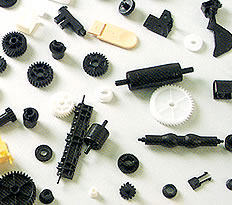The phrase “Reverse Engineering” refers to the art of taking an existing product and working backwards to establish what is important with the view to reproducing the same part.
There are many machines in existence that were made as unique one of a kind machine with special functions and features. There may also be imported machines that are now obsolete and are no longer supported by the manufacturer. The designers of many of these machines would have incorporated plastics as a construction material.
However as with any good products, they do not last forever and replacement parts need to be either sourced from the original equipment manufacturer or re-produced.
Plastic parts are generally used due to a range of advantages over conventional materials such as Bronze, Aluminium, Stainless Steel etc. These advantages could be:
• Ease of machining
• Chemical resistance
• Cost to produce
• No conventional lubricants required
• Good wear resistance


